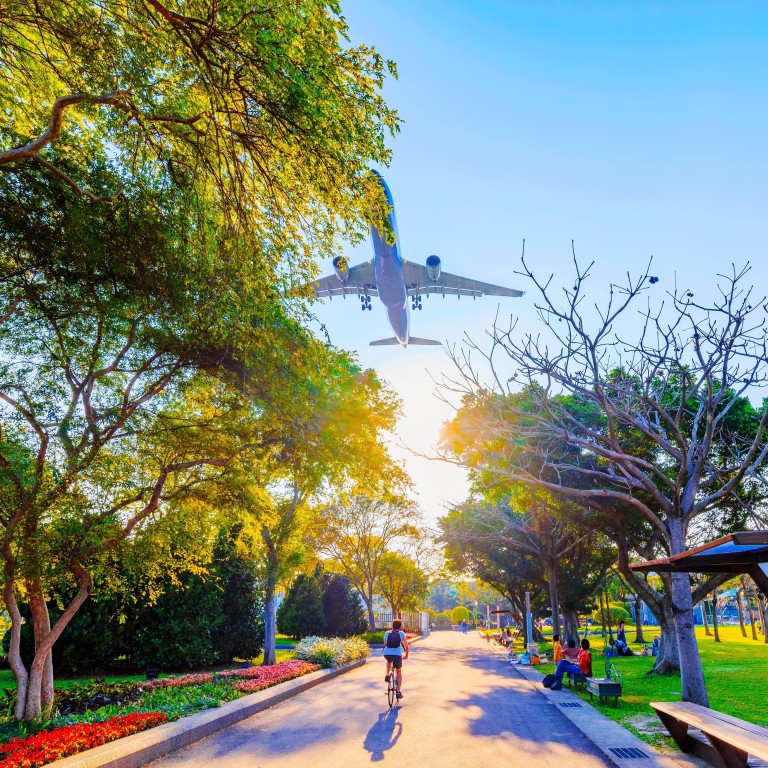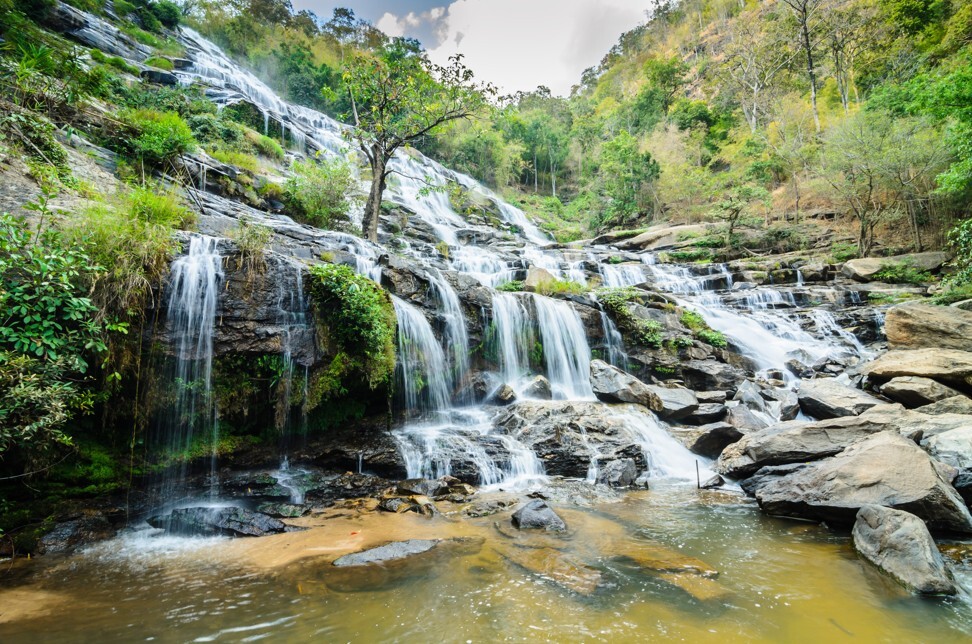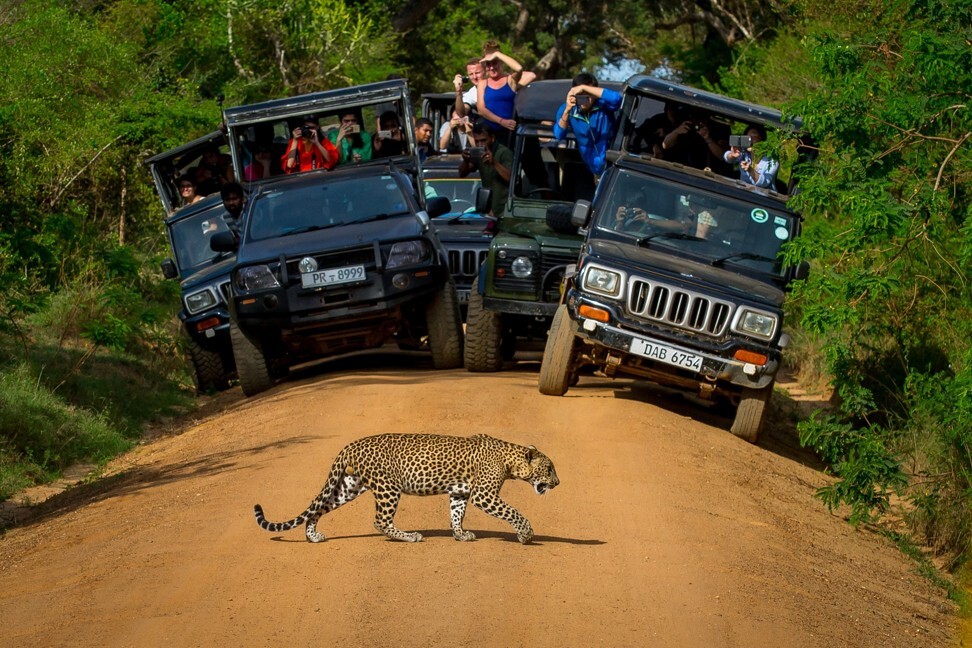
Flying was the worst – will travel in a post-pandemic world be any different?
- An airport in Taiwan is offering those with itchy feet the chance to simulate setting off on holiday without actually going anywhere
- The post-pandemic appetite for travel is difficult to predict, with some surveys suggest we will journey less but further
For many of us, flying has been a necessary evil without which we wouldn’t have been able to reach our holiday destination or business convention. But in the alternate reality that is 2020, interminable queues for check-in and security, unfriendly immigration officers and the tedium of taxiing to take off have acquired a rose-tinted appeal.
At least, that’s what the bosses at Taiwan’s Songshan Airport hope.
In northern Taipei – no visit to nearby Yuanshan Park would be complete without cowering as aircraft descend on their approach to Songshan – the airport is the prize in a competition offering 90 people the opportunity to “go abroad at Songshan”, or, to put it more prosaically, to tour the facility and simulate setting off on a distant sojourn without actually going anywhere.
According to CNN Travel, the lucky winners will “relive the experience of going through immigration, boarding a plane and then disembarking and returning home”. It might be a novel use of an idle airport, and a chance to promote the renovated departures hall, but excuse us if we’re not first in line at the check-in counter at least two hours before the scheduled “take off”.
Asian tourism is in crisis. Chinese tourists to the rescue?
More than any other industry, tourism has been upended by the coronavirus pandemic and its related restrictions on movement, causing companies and individuals alike to reassess their need – and their desire – to travel. The reasons for reflection are varied, but whether inspired by economic or environmental concerns, or anxieties about catching and spreading Covid-19, the outcome is likely to be the same – all signs point to a world that journeys a little less but a little further than before, at least in the early days of the new normal.
Envisaging tourism in the post-pandemic world is largely left up to the compilers of surveys that attempt to encapsulate the appetite for travel. One such study, conducted by Berlin-based travel start-up Tourlane, found that 24 per cent of respondents wanted to depart “as soon as we are allowed to travel again” but they were outnumbered by the 46 per cent who would wait until next year before picking up their passport once more.
But where does that leave Hongkongers, whose airport handled 71.5 million passengers last year? Well, anecdotally, we are among those who can’t wait to get away. Talk of quarantine corridors echoes around coffee shops while friends share dreams of distant destinations over dinner. Google Trends, which analyses a search term’s popularity over time, shows that “travel bubble” has been typed in by people in the city much more often since May 2, suggesting that feet are getting itchy.
Perhaps our wanderlust can be sated closer to home, though. Searches for “staycation” have similarly increased and Airbnb statistics released on June 18 show that domestic bookings have increased by up to 15 per cent, year on year.
Unfortunately for anyone missing the fun of flying, Hong Kong International Airport is unlikely to take a lead from Songshan and encourage tours of its underused facilities, since last year’s protests made access to those without a valid reservation near impossible. Still, strip lights and glacial air conditioning don’t exactly evoke the golden age of air travel.
Thailand considers annual closure for all national parks to aid environmental recovery

In what can be seen as a win for nature, Lonely Planet reported on June 9 that Thailand’s Department of National Parks, Wildlife and Plant Conservation was considering closing all of the country’s national parks for two to three months each year to allow the environment within to recover.
There are 133 national parks in the Land of Smiles, all of which have been closed since March 25, “until further notice”, as part of nationwide efforts to limit the spread of the coronavirus, according to the Tourism Authority of Thailand. Since the shuttering, increasing numbers of animals have been observed by the rangers who remain, including “fish that haven’t been seen in more than a decade”.
About half of the national parks already participate in an annual closure. Those that don’t will submit their plans to do so to the government.
Sri Lanka’s national parks reopen, first for domestic then international visitors

On the subject of national parks, Sri Lanka’s reopened on June 15, albeit with limits on visitor numbers. Officials at Yala National Park are restricting the number of safari vehicles to 150 per day, as are those at Udawalawe National Park, where elephants and more roam. At Horton Plains, only 50 groups are allowed access each day.
For the moment, these national parks can be enjoyed only by domestic tourists, but Sri Lanka is set to open to international arrivals from August 1. Travellers will need to bring proof they have tested negative for Covid-19 not more than 72 hours before arrival and will be tested again on entry, with subsequent tests – all free of charge – every few days for the duration of their stay. Additionally, every visitor is required to have a visa, can stay only at specified hotels and can’t take public transport.

